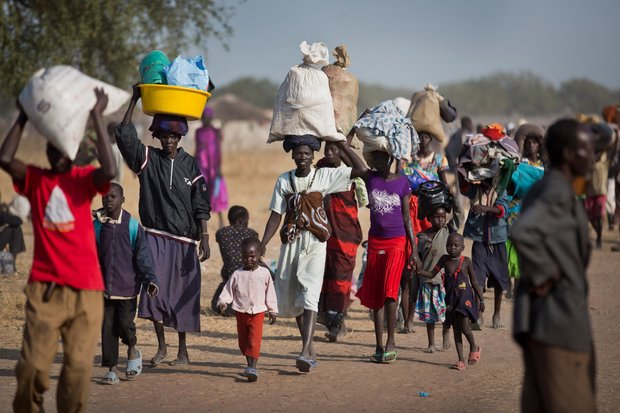The Horn of Africa region is grappling with a widespread humanitarian crisis linked to negative impacts of the COVID-19 pandemic on labor mobility, trade, and delivery of food aid, the World Food Programme (WFP), International Organization for Migration (IOM) said in a joint report launched in Nairobi Monday.
According to the report "Life Amidst a Pandemic: Hunger, Migration, and Displacement in the East and Horn of Africa", the pandemic has undermined the capacity of civilians across the region to cope with pre-existing challenges including hunger, malnutrition, conflicts, and displacement.
It says that 54 million people were estimated to be acutely food secure in the region in 2020, adding that among the most vulnerable to the hunger and malnutrition crisis include 8.9 million internally displaced persons, 4.7 million refugees, and asylum seekers, Xinhua reported.
According to the report, COVID-19 restrictions took a heavy toll on labor mobility, cross-border trade, the safety of migrants, and their ability to access basic services including health.
"Millions of people, particularly those living in urban areas, have lost their livelihood and income opportunities due to COVID-19, while the closure of schools has affected school feeding programs in several countries," says the report.
The UN said that disruption of global supply chains slowed down economic growth in the region, adding that job losses and shrinking remittances undermined the capacity of households to meet basic needs like food and medicine.
The report says that gender-based violence in the region has spiked during the pandemic while children and displaced populations have been exposed to the risk of abuse.
It recommends the timely provision of food, clean water, and essential drugs to displaced populations in the greater Horn of Africa region besides ensuring they have access to the COVID-19 vaccine in order to tame the humanitarian crisis.
Michael Dunford, Regional Director for the Regional Bureau for Eastern Africa at WFP, said the pandemic has reinforced the urgency for governments and donors to address a funding shortfall that has affected humanitarian support for vulnerable populations including refugees, migrants, women, and children.
"COVID-19 has only added to the challenges faced by these already vulnerable populations," said Dunford, noting that the world must come together so those in need are not forgotten and receive lifesaving humanitarian assistance to meet their food, nutrition, and other vital needs.
HJ/PR

























Your Comment